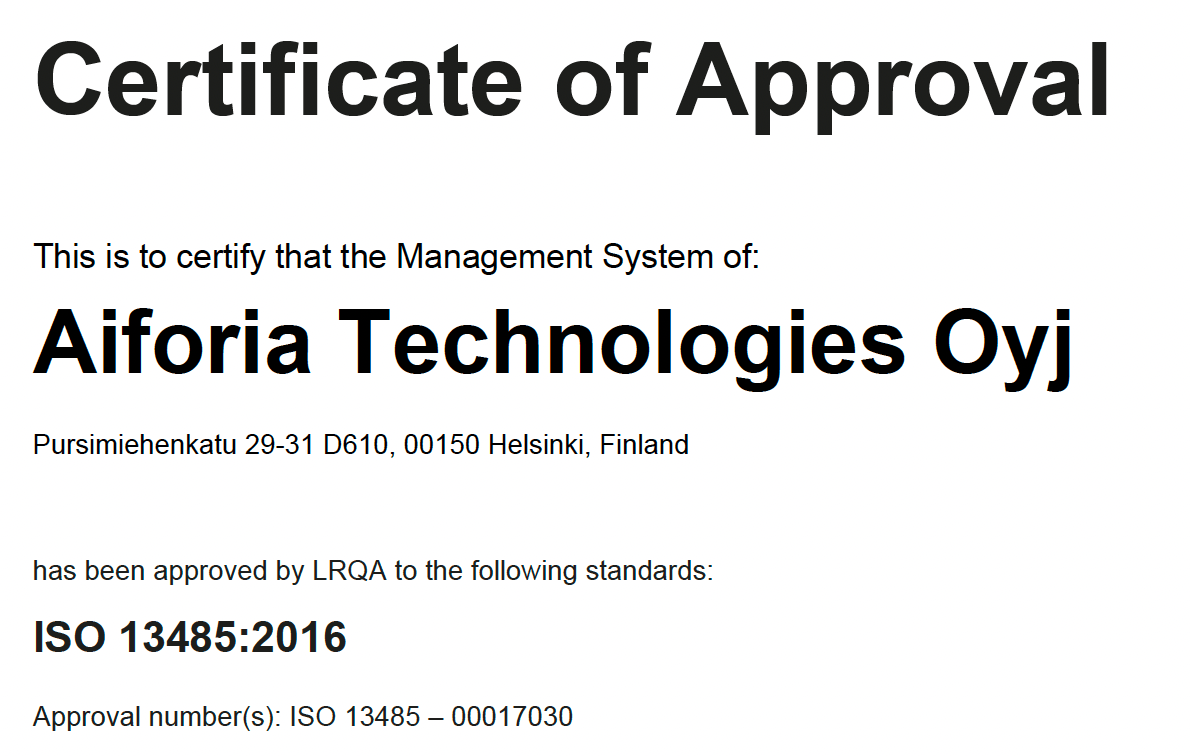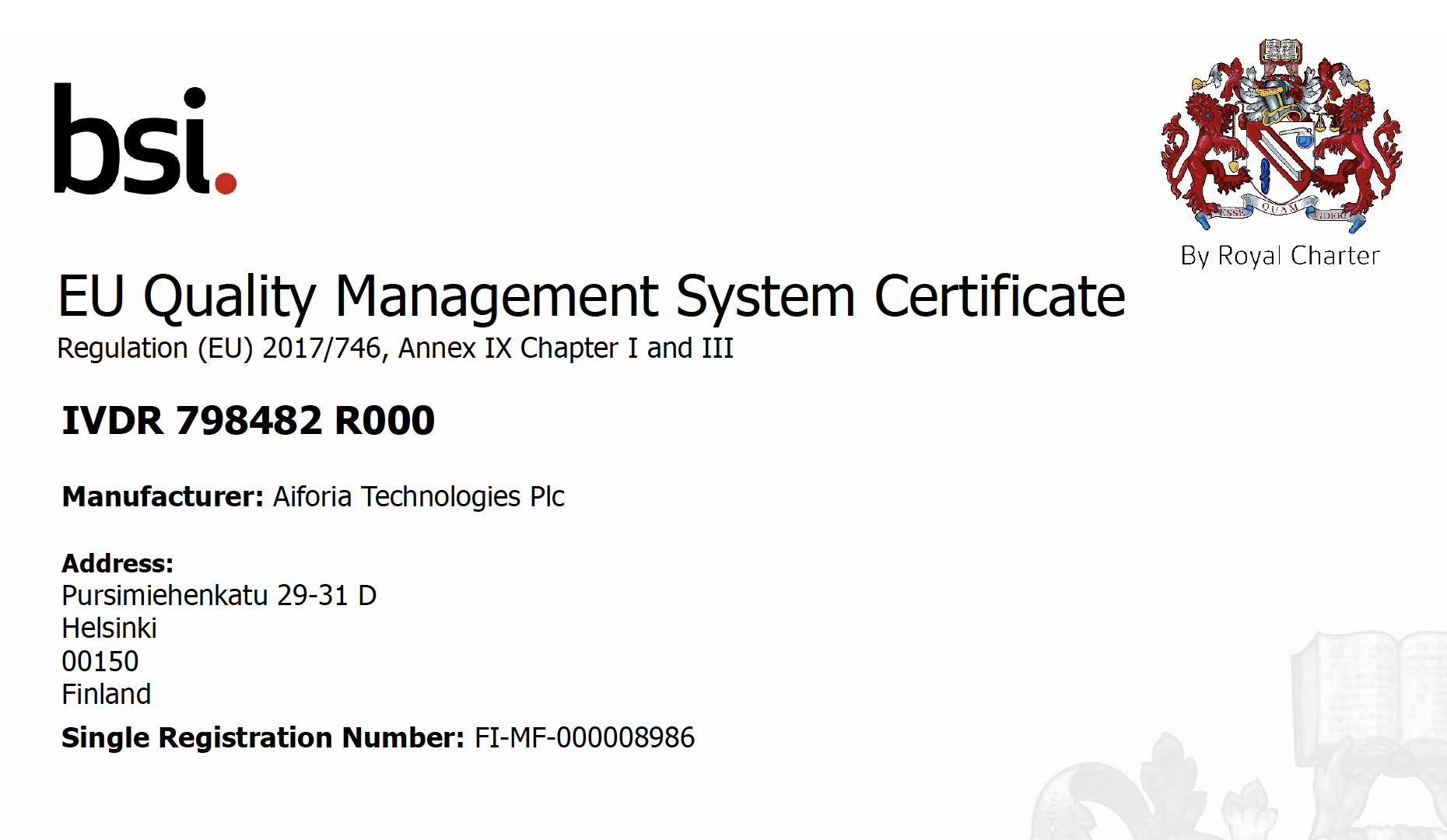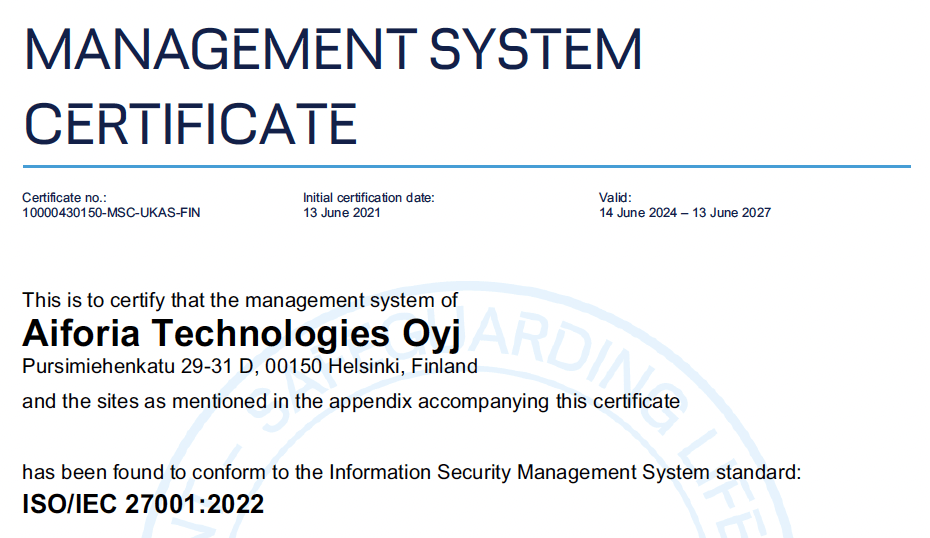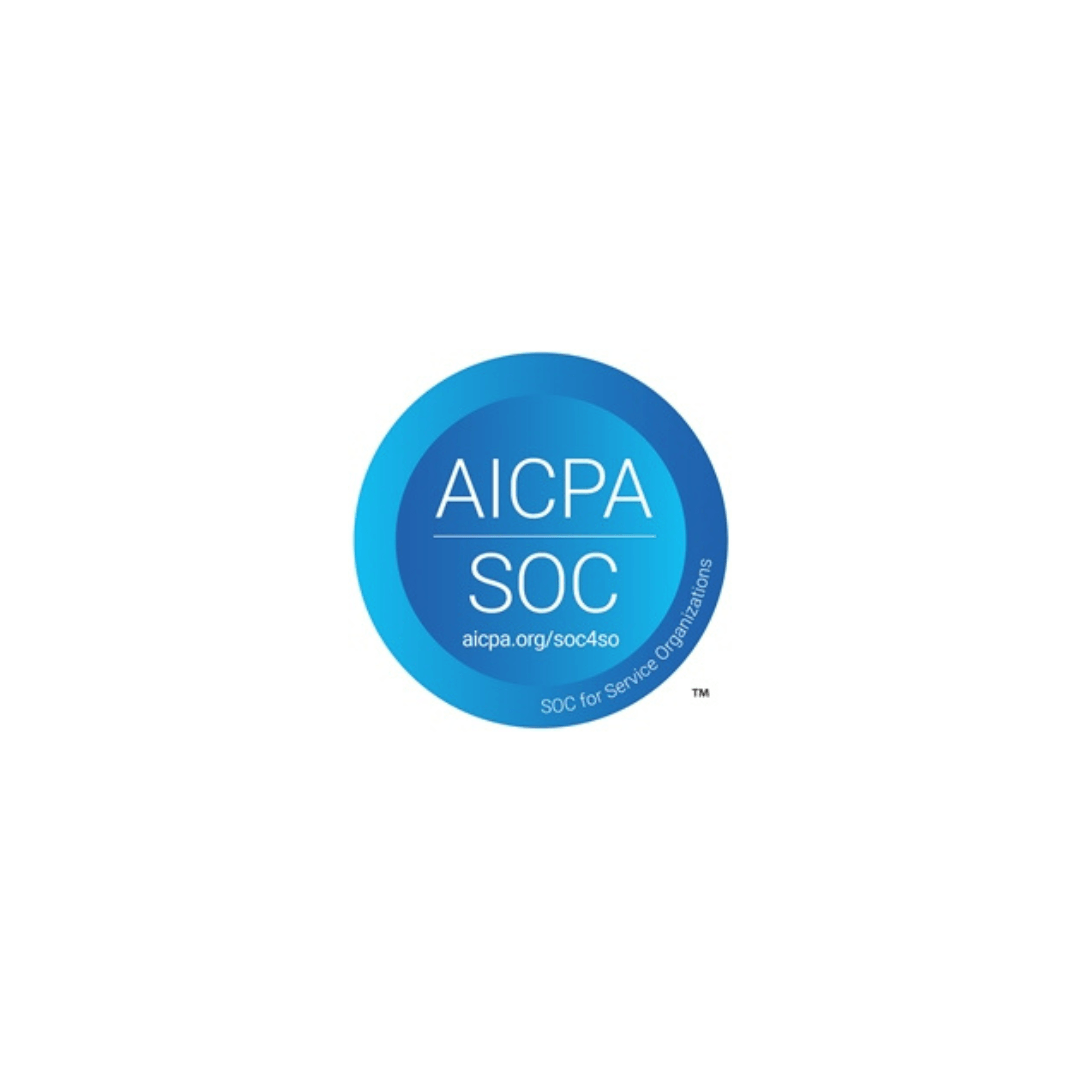Certificates





ISO 13485:2016
Specifies requirements for a quality management system where an organization must demonstrate its ability to provide medical devices and related services that consistently meet customer and applicable regulatory requirements. Such organizations can be involved in one or more life-cycle stages, including design and development, production, storage and distribution, installation or servicing of a medical device, and design and development or provision of associated activities (e.g., technical support).
In Vitro Diagnostic Regulation (IVDR)
The In Vitro Diagnostic Regulation (IVDR) establishes a robust regulatory framework for diagnostic medical devices within the European Union. Implemented in 2022, the IVDR replaces the In Vitro Diagnostic Directive (IVDD) with a more comprehensive and stringent set of requirements. These updated standards aim to enhance patient safety, ensure product quality and performance, and harmonize European regulations. Key changes introduced by the IVDR include stricter clinical evidence requirements, enhanced post-market surveillance, and a new risk-based classification system.
ISO 27001:2022
Specifies the requirements for establishing, implementing, maintaining, and continually improving an information security management system within the context of the organization. It also includes requirements for assessing and treating information security risks tailored to the organization's needs.
SOC 2 Type II Report
An internal controls report that captures how a company safeguards customer data and how well those controls operate. SOC 2 is an auditing measure developed by the American Institute of CPAs (AICPA) that ensures service providers securely manage user data.
A SOC 2 Type 2 report ensures that a company considers all aspects of the business when evaluating information security, including but not limited to: data processing, development processes, hiring practices, personnel training, new hardening, detection, and prevention methods.
HIPAA Security Rule
Aiforia has designed and implemented its security practices to comply with the Health Insurance Portability and Accountability Act of 1996 (HIPAA). Additionally, an independent audit firm has evaluated and tested the controls identified by Aiforia for compliance with the HIPAA Security Rule. HIPAA compliance allows Aiforia to offer AI-supported image analysis solutions to a broader range of customers in the US.
HIPAA is a US federal law that protects the privacy and security of individuals' health information in the United States. Compliance with HIPAA requires strict adherence to various security and privacy measures, including administrative, physical, and technical safeguards.
Why the cloud?
A cloud-based platform affords any laboratory with infinitely scalable digital pathology deployment.